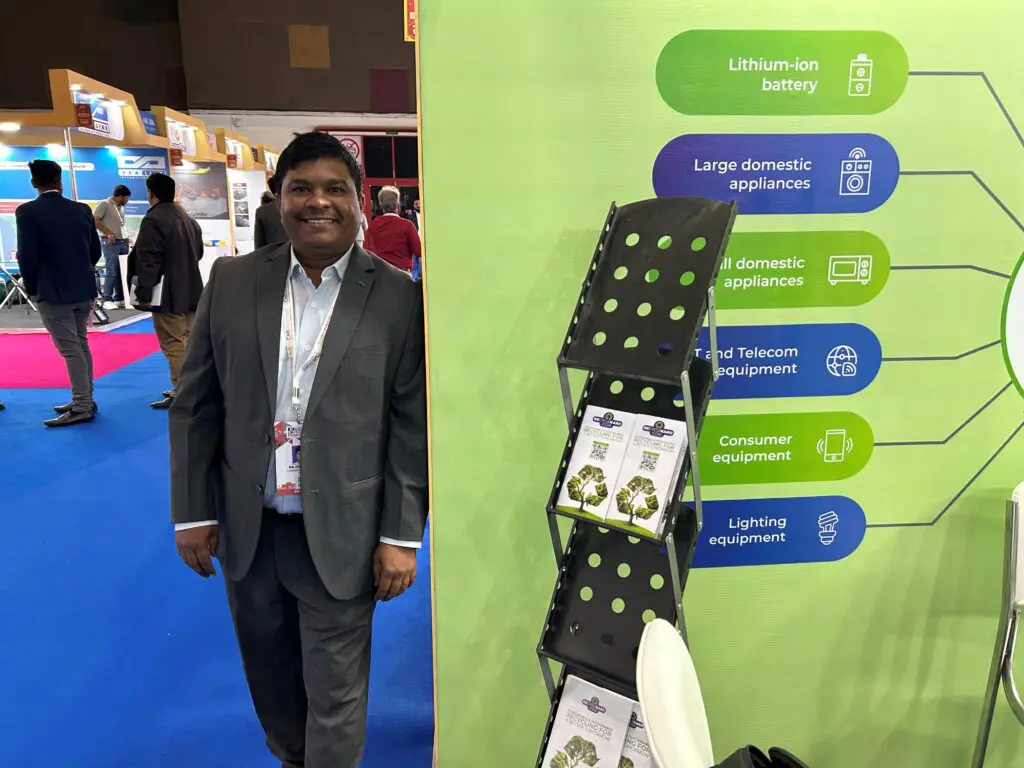Lithium battery recycling is slowly but surely getting off the ground in India. In recent months, a handful of new and promising operations has been announced or launched – in Delhi, Gujarat, and tech industry hub Bengulu among others.
One of the leading actors in battery recycling in the greater Mumbai region is Recyclekaro. The company is busy with a major expansion of its operations, more than tripling its total recycling capacity. A big part of the capacity boost is for the treatment of lithium batteries.
Recyclekaro has a modern facility at Palghar, north of Mumbai. ‘The expansion will ramp up our capacity from 7 500 tonnes to 24 000 tonnes per year,’ says company founder and ceo Rajesh Gupta.
‘This reinforces our commitment to advancing India’s green agenda through sustainable solutions for e-waste, battery waste and plastic recycling,’ Gupta tells Recycling International on the sidelines of the International Material Recycling Conference (IMRC 2025) in Jaipur, where Recyclekaro has a booth.
Massive e-scrap mountain
India generates more than 3.2 million tonnes of e-waste per year, with lithium-ion battery waste alone growing at 30% per year. ‘Our expanded capacity directly addresses these challenges, accelerating the country’s transition to a cleaner, more sustainable future.’
According to Gupta, it is crucial to overcome the environmental risks associated with battery disposal, while recovering valuable resources for reuse. Recyclekaro preaches a zero waste approach, which means all materials going through its hands – even the smallest fractions of plastic – are recycled or reused. ‘No landfilling, no incineration, none of that,’ assures Gupta.
Claimed best practice
The focus for the ceo is on solutions that will ‘redefine’ the industry, meaning ‘only cutting-edge technology.’
Recyclekaro says it recovers critical metals such as lithium, cobalt, nickel, and manganese with ‘over 95% efficiency and 99.5% purity’. Materials are used for the production of energy storage solutions.
To date, Recyclekaro has recycled some 27 000 tonnes of e-scrap and 8 500 tonnes of lithium batteries. The company has a network of 1 200 collection hubs and partners with leading battery manufacturers, carmakers and renewable energy companies including Bajaj Auto, Ather Energy, Hero MotoCorp and Tata Motors.
More plans
Gupta has plans to set up a second e-scrap plant but that won’t be happening soon. ‘Our priority is to get the new expansion running.’ Meanwhile he is calling on state and national governments to support recycling. ‘Make sure new regulations are implemented and enforced.’
Other challenges include an ambition to work with the informal sector over collections. ‘We need them. Together we can boost not only the volumes but also the quality.’
ALSO CHECK RECYCLING INTERNATIONAL’S PHOTO GALLERY FROM IMRC 2025 >>
Don't hesitate to contact us to share your input and ideas. Subscribe to the magazine or (free) newsletter.



